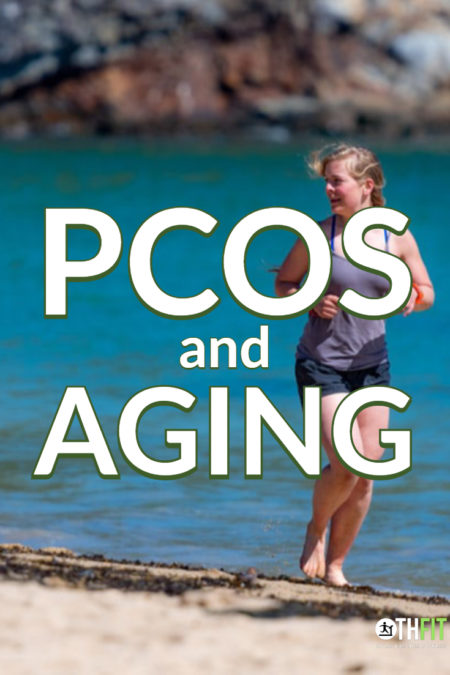
Sex After 40
Things Change in Our 40s
Getting older brings with it a lot of changes and once we enter our 40s some of those changes can impact our sex lives, both positively and negatively. This article will look at what some of those changes are that can impact our sex lives for both men and women, what science says about sex after 40, and ways to improve sex after 40.
What Changes Can Men Expect After 40?
Around age 40 men begin to experience slowly lessening levels of male hormones, most notably testosterone. You can expect to normally lose about 1% a year from age 40 until your late 50s to your early 60s when this loss usually speeds up. At 60, testosterone deficiency is present in about 20% of all men (Canyon Ranch, 2020).
Lots of men won’t notice this gradual decline; however, some men will and in others the decline will be more rapid and the symptoms that arise will be noticeable. Because low testosterone can also be caused by other health conditions, if you notice any of the following symptoms, it’s important to bring them up with your Dr.
Signs of Low Testosterone
- Lowered sex drive
- Erectile dysfunction (ED)
- Swollen breasts
- Enlarged prostate
- Loss of body and/or pubic hair
- Reduced size of testicles
- Depression
- Fatigue
- Mood issues
- Trouble with memory
- Difficulty concentrating
- Mild anemia
- Hot flashes
- Sleep apnea
- Obesity
- Infertility
- Muscle weakness or a loss of muscle mass
- Osteoporosis
- Despite working out, not seeing results
- Loss of competitive edge

It’s easy to see that if a man has low testosterone, his sex drive after 40 may well be impacted. He may not have the libido he once had or because of the symptoms, he may not feel as sexually attractive or confident.
Thankfully, testing for low testosterone is an easy blood test and doctors now believe that it doesn’t have to be an automatic side effect of aging. There are a few contributers including depression, obesity, and quitting smoking. Although, the health risks of continuing to smoke are much higher than the risk of lowered testosterone.
The best news about low testosterone is that it is treatable. Many men with a modest decrease in hormone levels can see improvement with lifestyle changes. Things like eating a healthy diet, losing weight, not drinking alcohol in excess, getting routine quality sleep, and exercising routinely can improve their levels.
For others with very low levels or who are not producing testosterone on their own, there are testosterone supplements that can be prescribed. There are some serious side effects so this should be explored secondary to lifestyle changes to treat low testosterone.
Men who have erectile dysfunction can be prescribed medications and there are even surgeries that can treat it to restore sexual function. The levels of hormones may be the largest factor that can impact men regarding sex after 40.

Changes to the Penis
Men also experience changes to their penises. You may have noticed recently the commercials on TV talking about the curve that may have formed in a man’s penis. This is actually really common. It happens due to trauma, usually from sex when the shaft gets bent. After years of having sex, the penis may have a pronounced curve.
That curve is caused by scar tissue that has formed each time there was trauma around the tunica albuginea – that’s the sheath around the tissue that fills with blood to create the erection – eventually it hardens enough that it forms a curved erection. This can impact the penis’ length, girth, and even sexual function. There are now medications to treat it and, in some cases, surgery.
Some men will also have less desire for sex as they age, their erections may be less frequent, and they may not be able to have multiple erections after sexual encounters in short time frames. The biggest risk factor for these declines is actually heart disease so a healthy lifestyle can mitigate some of these.
As you continue to age, the nerves in your penis may be less sensitive and achieving and maintaining an erection can become an issue. Without the ability to maintain an erection, having an orgasm can be out of reach. At this point

Changes to the Scrotum and Testicles
We already discussed how lowered hormone levels can cause testicles to shrink. As you know, testicles reside inside of a man’s scrotum. As the man ages, the scrotum actually loses elasticity, like skin elsewhere on the body, and it becomes looser and saggier.
This is also hastened by the decline in the muscle that lines the scrotum. That smooth muscle has a really important job to regulate the temperature of the testicles by either holding them close to the body to keep them warm or allowing them to drop further away to cool them off. As you age, it too ages and slackens.
Sometimes too much fluid builds up inside a testicle and it causes your scrotum to sag, this is called a hydrocele. Usually, this is painless and resolves on its own. If it hurts or there’s swelling, you should call the Dr.
Now that we’ve covered the physical changes a man may go through that may impact sex after 40. Let’s take a look at women.
What Changes Can Women Expect After 40?
Around 40, or shortly after, a woman may start to experience the symptoms of perimenopause or pre-menopause. The actual average age of onset is 47 but the symptoms can begin much sooner.
Perimenopause is when a woman’s hormone levels begin to fluctuate and lower in preparation for menopause when she will cease menstruation. Menopause commences when she hasn’t menstruated for a year.
The hormones that are involved are the reproductive hormones estrogen and progesterone. As they begin to decline the following symptoms may be seen.
Signs of Perimenopause
- Trouble sleeping
- Changes in your periods
- Headaches
- Increased wrinkles
- Acne
- Changes in libido
- Vaginal dryness
- Weight gain
- Hair loss
- Incontinence
- Dizziness
- Unwanted hair growth
- Dry skin
- Hot flashes
- Heart palpitations
- Night sweats
- Water retention/bloating
- Brain fog
- Memory issues
- Anxiety
- Fatigue
- Moodiness
- Trouble multi-tasking
- Angry feelings
- Difficulty concentrating
- Impatience

Much like with men, it’s easy to see how these symptoms could impact sex after 40 for women. For example, vaginal dryness can cause sex to be painful. The emotional symptoms of perimenopause along with the lowered libido can make the desire for sex to lessen greatly.
Women who have gained weight, are experiencing hair loss, acne, or facial hair growth may have increased feelings of lower self-esteem making finding the desire for sex even more difficult.
Thankfully, there are many interventions to help women navigate this time in their lives and embrace the journey while maintaining an active and fulfilling sex life after 40 if they wish.
Changes in the Vagina and the Vulva
The lower hormonal levels of perimenopause and menopause can cause the walls of the vagina and the skin of the vulva to become thinner and less elastic as well as drier. This means that it is more inclined to tear or bleed during sex.
After menopause, if a woman has infrequent sex or penetration the vagina may also become more narrow and shorter lending itself again to be easier to injure when she does have sex as well as experience pain, even if using lube.
For these reasons, remaining sexually active, even without a partner but with some sort of penetration can help keep your vagina healthy. If you experience vaginal dryness, you should speak to your doctor. There are hormonal creams that can help keep your vagina lubricated. Of course, if you are inserting anything, water-based lube is usually a good idea.

How to Improve Sex After 40
Now that we understand the physical and hormonal changes that can lead to sexual issues after 40, what steps can be taken to improve sex? This is where you can take some action to get more action.
Increase your overall wellness
As we talked about above, the better your general health, the better your genital health. If you have a healthy diet, are not smoking, and get some daily exercise in, you’ll be well on your way to better sex.
Drink only moderately
Drinking too much alcohol can kill your libido and for men, it can impact our ability to get and maintain an erection. Enjoying a glass of wine together can be romantic, getting sloppy drunk can end the night.
Exercise with your partner
Working out together can be super sexy. Not only are you getting your heart rates up but seeing the person you desire getting all sweaty is a great way to get your engines primed. You’re working on your health, your bodies, and showing each other that you care about taking care of yourself for them.
See your doctor
If you have a concern about your libido, sexual performance, or pain during sex talk to the doctor. There are a lot of medical interventions but they can also pinpoint the issue and recommend lifestyle changes to address the specific problem.
Open up to your partner about any issues
Tell your partner about what’s going on with you. Is your medicine impacting your desire? Let them know. It’s so much better to be upfront than to leave them thinking there’s something wrong between you or with them.
Seriously, this one is the most fun but it also is the one that people balk at. I’ve spoken with couples that have been married 20 years who are still having the same sex that doesn’t fulfill the fantasies of either one! You should be able to tell your lover what you like, what you’d want to experiment with, what you fantasize about. If they aren’t comfortable doing it, it can stay a sexy story between you. If they are? Then you’ve just started a really fun adventure!

Bring toys (and a good water-based lube) into the mix
This is a good way to extend a lovemaking session, bring extra excitement, and to just have fun with each other (or with yourself). There are seriously so many toys to experiment with now that you could try a new one every week! And guys, there are great toys for you to play with too.
Spend time together outside of the bedroom
Life can get crazy and hectic and it can be hard to get some quality time in with your partner. However, if you really want to improve things in the bedroom, one of the best things you can do is improve things out of it. The more connected you feel in general, the more connected you’ll feel between the sheets, or in the shower, no judgments here!
Get plenty of quality sleep
This goes back to being generally healthy. If you don’t get adequate rest, your chances of being depressed, fatigued, stressed, and unwell increase. All of those decrease your sex drive. If you need tips on getting a good night’s rest we’ve got you covered.
Find ways to reduce your overall stress
We know that stress impacts almost every part of your life, your basic cognition, memory, and as we learned your sex drive. If you are able to manage your daily stress you’ll see an uptick in your desire.
Go on vacation together
In 2013 the US Travel Association did a survey that found a whopping 77% of couples that responded who traveled with their partner had “flourishing” sex lives! That’s a pretty amazing percentage!
Add Yoga into your daily routine
Yoga has been shown to improve the sex lives of those who practice it regularly. In fact, a 2010 study in the Journal of Sexual Medicine showed that three specific poses done by women in a 12-week study showed remarkable promise. The Snake, Half-Spinal Twist, and Triangle pose improved desire, lubrication, orgasm, and overall satisfaction in 75% of the women.

Get Over Your Sexual Hangups
To have a really fulfilling sex life you have to be 100% comfortable with sex and with your partner. To do this you may have to work on some areas that you have struggled with. Do you have a hard time with your partner seeing you naked? Then how are they going to worship that gorgeous body? You have made it to 40 and beyond, you deserve a full and amazing sex life with all of the pleasure it contains. Confronting some uncomfortable thoughts and fears about sex and/or your body may be required to truly embrace it.
Think about seeing a sex therapist
Maybe you can’t conqure your hangups on your own. That’s ok! There’s a professional for that. Perhaps you and your partner could use a little help getting things on the right track, great then a sex therapist can help you out.
Hopefully, this article has been helpful to you when looking at sex after 40. I think it’s so important to understand what’s happening physiologcally and what can be done to address it, embrace the changes, and have a fulfilling and fun sex life after 40.












2 Comments
Heather Ritchie
I saw this and realize that I fall into that age range now! *Sigh But this is great information because we really do change as we age and in many ways. But life doesn’t end after 40. You can still have an amazing sex life for decades to come thanks to great information like this!
Nadim Alamuddin
Very informative article. It’s good to know that while we do slow down as we get older, there are always ways to explore to overcome the challenges. This applies to a lot of things in life. Carpe Diem!!